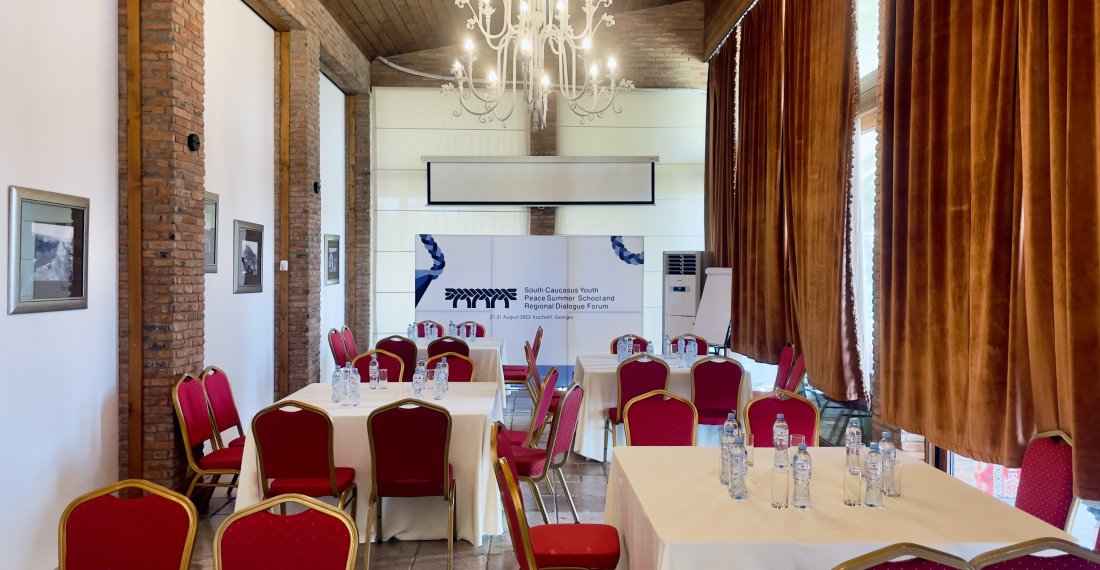Thirty young leaders, activists and opinion shapers from Armenia, Azerbaijan and Georgia will participate in the first South Caucasus Youth Peace Summer School (SCYPSS), which will be held in Kachreti Georgia from 21-31 August 2023.
SCYPSS is an initiative of LINKS Europe and is organised with the support of the European Union and the Government of Norway. The idea of a South Caucasus Youth Peace Summer School was included in the report "The South Caucasus from war to peace: thirty measures between now and 2030", prepared by the Joint Liaison Group of Armenian and Azerbaijani experts on confidence-building measures in support of lasting peace in the South Caucasus, published in April 2022.
A faculty of experienced international and local academics, practitioners and experts will help deliver the content of the school which will consist of dozens of elements including workshops, lectures, debates, cine-forums and numerous social events.
On 29-30 August, the members of the School will join established regional experts from Armenia, Azerbaijan and Georgia for a Regional Dialogue Forum which will convene under the title: "The South Caucasus: a region connecting regions".
Preparations for the Summer School and Regional Forum have been on-going for months, led by an International Preparatory Committee which held meetings in Tbilisi in May and in The Hague in July. A management committee has been responsible for the technical preparations.
On Monday morning (21 August) as participants travelled from Baku, Tbilisi and Yerevan to participate in the school, preparations in Kachreti were going on in earnest. The event will be officially inaugurated at 1800.
A spokesperson for LINKS Europe told commonspace.eu:
"We are excited to be hosting the first South Caucasus Youth Peace Summer School, and that we are doing this despite the complicated regional and international situation. The participation of young people from the three countries at this event indicates that there is readiness, despite differences, to meet, share opinions and slowly build trust between different nationalities in the region. SCYPSS is a confidence-building measure at a time when such measures are much needed. LINKS Europe will work with our able international faculty and the participants from Armenia, Azerbaijan and Georgia for the success of the event".






